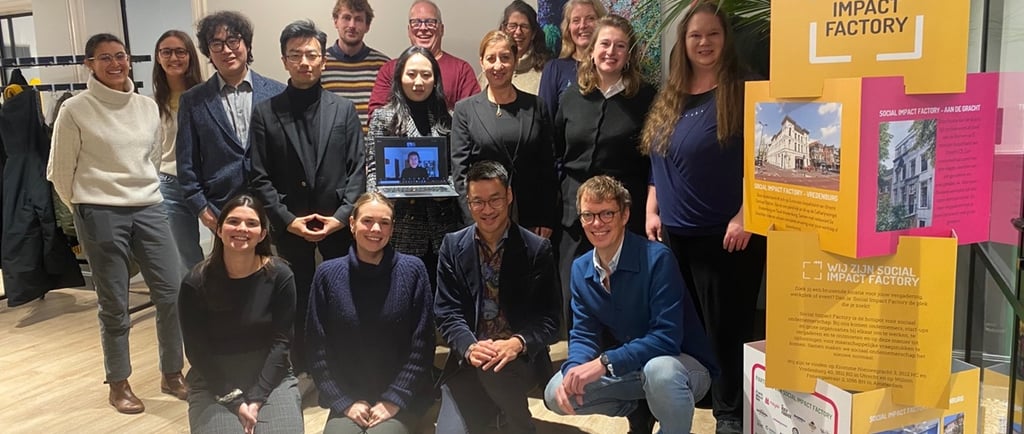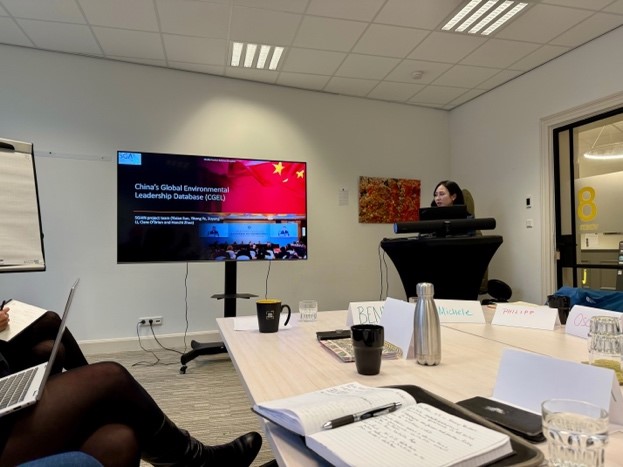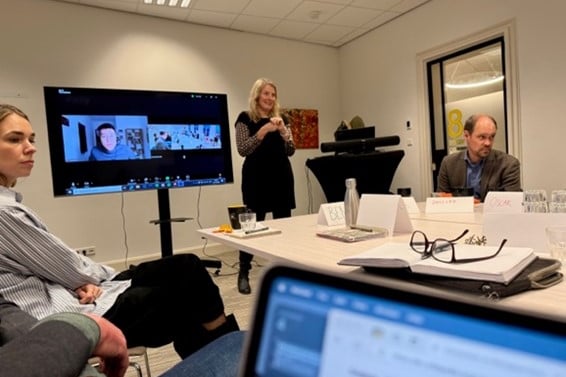Researching with Data: Reflections on the ClimBio Database Workshop in Utrecht, Netherlands


Over the past two days, I had the privilege of participating in the ClimBio Database Workshop in Utrecht, from 4th to 5th December 2024. This workshop brought researchers, practitioners, and other different actors together, offering an excellent platform to discuss, reflects, and cooperates for future database research.
Exploring the landscape of climate-related governance databases
The workshop started by introductions over lunch, where we quickly got to know each other and had preliminary understandings of others’ research, as we all shared the interest in transnational climate and biodiversity governance. The ClimBio Frontiers research groups firstly introduced us to the project aims to unpack the role of Transnational Governance Initiatives (TGIs) as critical actors at the climate-biodiversity frontier. To do so, they seek to develop an open-access database of TGIs (WP1) and critical analysis of TGI framings around climate, biodiversity, and justice (WP2). Their reflection on the ongoing conceptual work inspires me to deeply think the dynamic evolution of “frontiers” in political science.




In the following session, researchers introduced their data work associated with transnational climate governance and biodiversity. The Climate Cooperative Initiatives Database (C-CID) made me impressive. It covers 900 relevant initiatives, with over 100,000 instances of actor engagement across 100+ variables. Then based on the C-CID data, the project also developed a Nature-based Climate Cooperative Initiatives Database (N-CID). Not only the initiatives covered by C-CID and N-CID provides a great reference for the cases in our database, but the process also sparks my ideas for improving interoperability and accessibility, particularly for researchers and policymakers working across disciplines. The Problem Shifts Database stood out as a particularly insightful repository, documenting cases where efforts to solve environmental problems. I learnt a lot from their ways of storing and maintaining databases.
The BioStar database provide a global stocktake and evaluation of targets and commitments for global biodiversity governance. Its indicators including accountability, effectiveness, landscape perspective, and financing are very interesting. Professor Katharine Rietig briefly presented various limitations that researchers working with database may encounter. The Nexus Governance for Transformative Change explored how to visualise and analyse the connections across the indicators within the database. In this workshop, we presented our recent work regarding the China’s Global Environmental Leadership Database (CGEL). We also received a lot of helpful feedback and suggestions, especially the definition of “leadership”. This sparked ideas about the various perspectives around leadership.
Deep Dive: World Café & Research Tasks
A highlight of the workshop was the World Café exercise, where participants rotated through thematic discussion rounds to collectively tackle key research challenges and opportunities. Each round focused on a specific question or task, involving brainstorming and knowledge sharing. In this exercise, we identified critical gaps in existing datasets and discussed the innovative ways to integrate climate, biodiversity, and social justice dimensions. The World Café facilitated a productive exchange of perspectives. from discussion to action with a Hackathon session, we focused on joint data collection and coding exercises. This hands-on activity allowed us to refine interpretative coding approaches, exploring the empirical challenges existing in data collection and coding.
Looking Ahead: Reflections and Final Thoughts
The ClimBio Database Workshop served as a great opportunity for collaboration, shared knowledge, and innovative tools in tackling some of the most urgent challenges of our time. By bringing together diverse stakeholders and researchers, the workshop demonstrated the opportunities and challenges existing in database work and collective efforts
As we look ahead, the task remains to bridge knowledge gaps, refine methodologies, and ensure that data-driven solutions are inclusive and just. With projects like ClimBio Frontiers , the Problem Shifts Database, CGLE Database and other excellent works, we are better equipped with analytical tools to investigate the complexities of environmental governance. I left Utrecht with numerous new ideas. Many thanks to the ClimBio Frontiers research group for organising this event and to the invaluable support provided by our SGAIN members.


